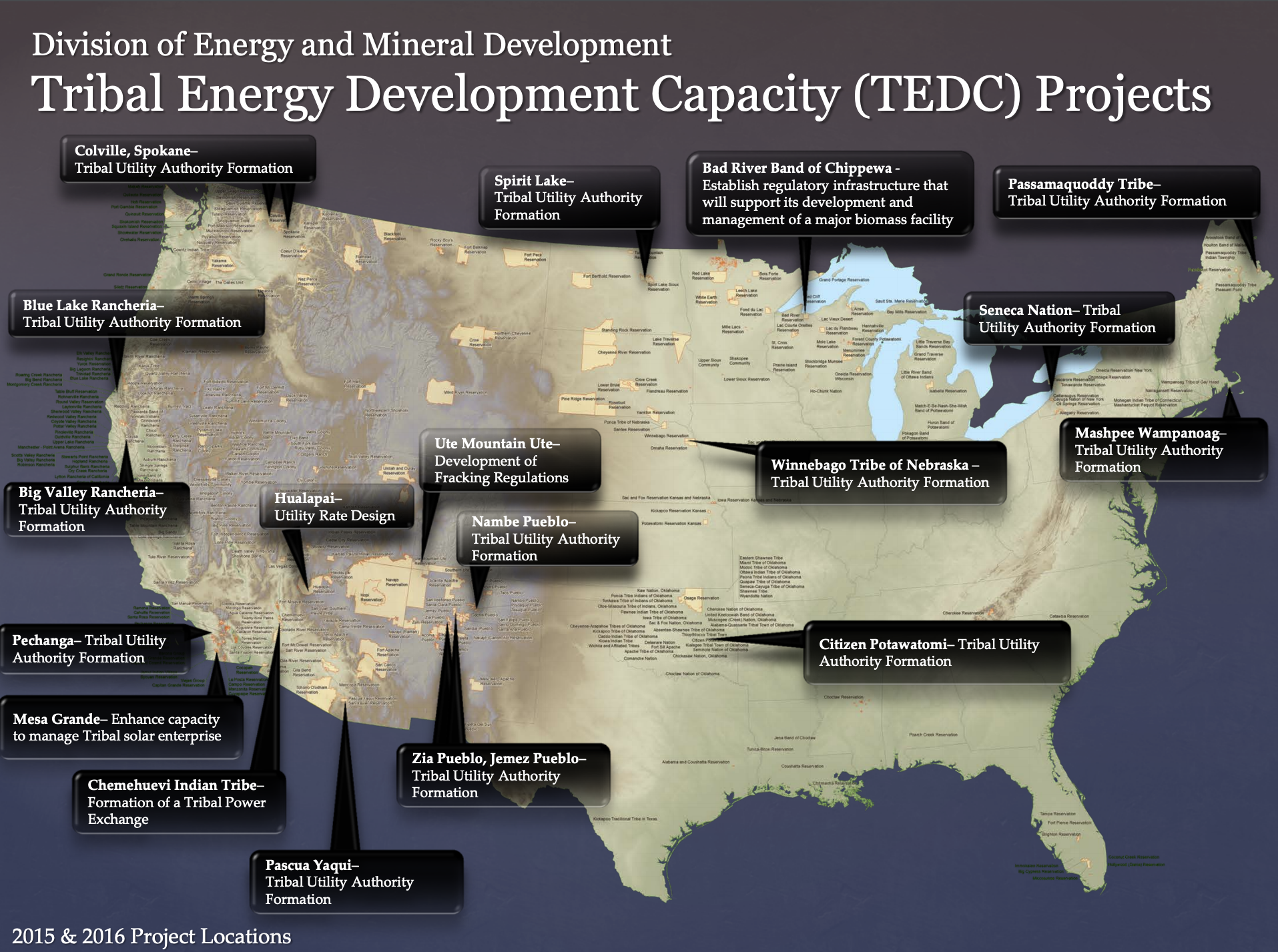
- Details
- By Tribal Business News Staff
- Energy | Environment
WASHINGTON, D.C. — The U.S. Department of the Interior’s Office of Indian Energy and Economic Development is seeking grant proposals from federally recognized tribes and Alaska Natives to build capacity for energy resource regulation and management.
The department, via the Division of Energy and Mineral Development (DEMD), is accepting applications for the Tribal Energy Development Capacity (TEDC) grant program through Sept. 1, 2020. It expects to provide 15 grant awards ranging from $10,000 to $1 million, decided in a competitive ranking process, according to an announcement.
“The purpose of the TEDC grant program is to develop tribal managerial, organizational and technical capacity needed to maximize the economic impact of energy resource development on Indian land,” according to the program’s website.
The grants are available to help federally recognized American Indian tribes, Alaska Native villages and entities, and tribal energy resource development organizations “regulate and manage their energy resources through development of organizational and business structures and legal and regulatory infrastructure.”
Possible one-year projects could include establishing tribal business charters with a focus on energy resource development, implementing a secured transactions code, performing feasibility studies on forming a tribal utility authority and developing tribal energy regulations.
The studies can be conducted by colleges and universities, private consulting firms, or nonprofits, according to the grant solicitation.
Regulatory projects could include creating tribal regulations for the leasing of surface and subsurface land for energy development pursuant and enacting ordinances related to regulating and developing energy resources.
Previous TEDC grant funding rounds resulted in applications for more than the available funding, necessitating the competitive ranking process, according to the division.
“The DEMD supports a wide assortment of project types and will always attempt to promote diversity in terms of both geographic location and tribal representation,” according to the grant solicitation.
The funding can not be used for academic research projects, developing strategic energy plans, weatherization activities, research and development of “speculative or unproven technologies,” or environmental studies for a project development, among others.
Applications should discuss how the proposed project would help “in developing the capacity needed to maximize the economic impact of energy or mineral resource development on Indian land, and to what extent would that would affect the overall economy of the Tribe,” according to the grant solicitation.
Past awardees include the Bad River Band of the Lake Superior Tribe of Chippewa Indians of the Bad River Reservation ($79,000), Big Valley Band of Pomo Indians of the Big Valley Rancheria ($217,375), Chemehuevi Indian Tribe of the Chemehuevi Reservation ($164,062), Mesa Grande Band of Diegueno Mission Indians of the Mesa Grande Reservation ($160,500), Passamaquoddy-Indian Township ($150,000), Pueblo of Jemez ($250,000), Pueblo of Zia ($188,000), Spirit Lake Tribe ($139,000), Ute Mountain Ute Tribe of the Ute Mountain Reservation ($131,072), and the Winnebago Tribe of Nebraska ($78,600).
